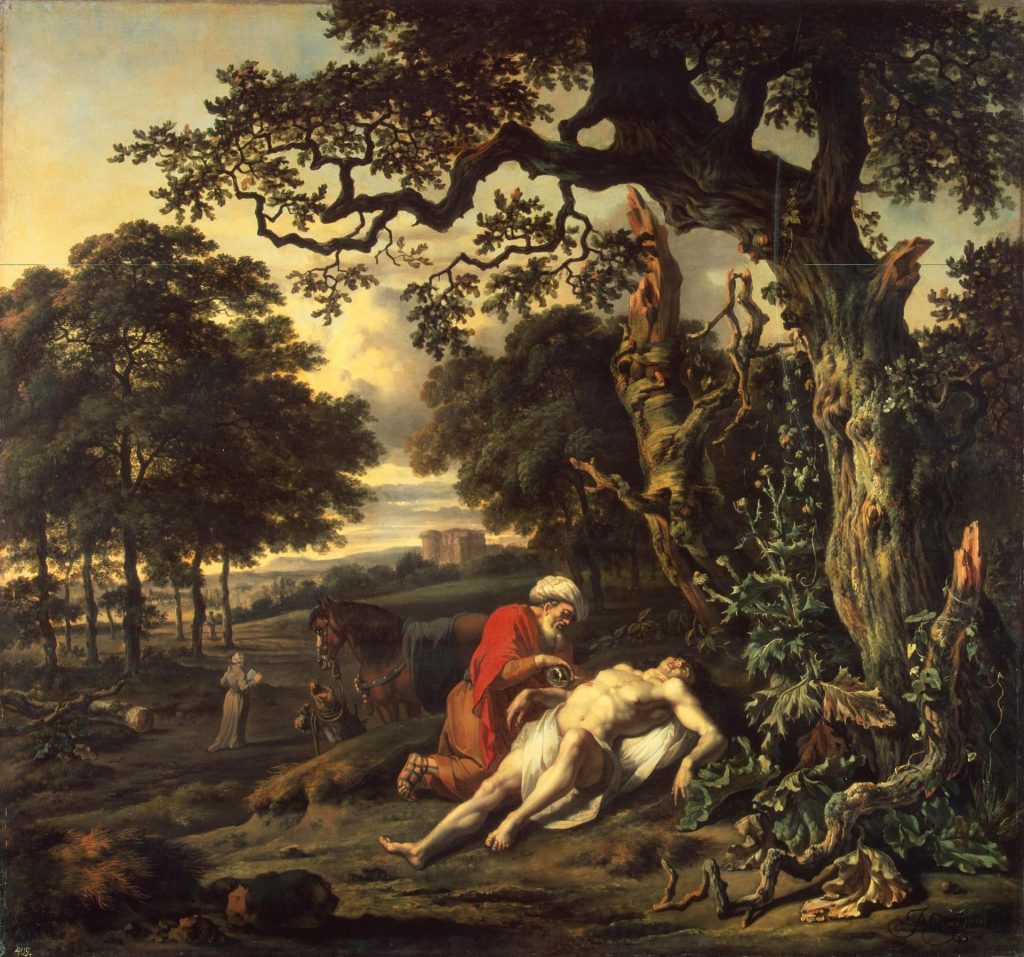We are to love God and our neighbor with all the strength of our being, as the scholar of the law answers Jesus in Sunday’s Gospel.
rnThis command is nothing remote or mysterious — it’s already written in our hearts, in the book of sacred Scripture. “You have only to carry it out,” Moses says in the First Reading.
rnJesus tells his interrogator the same thing: “Do this and you will live.” The scholar, however, wants to know where he can draw the line. That’s the motive behind his question: “Who is my neighbor?”
rnIn his compassion, the Samaritan in Jesus’ parable reveals the boundless mercy of God — who came down to us when we were fallen in sin, close to dead, unable to pick ourselves up.
rnJesus is “the image of the invisible God,” Sunday’s epistle tells us. In him, the love of God has come very near to us. By the “blood of His Cross” — by bearing his neighbors’ sufferings in his own body, being himself stripped and beaten and left for dead — he saved us from bonds of sin, reconciled us to God and to one another.
rnLike the Samaritan, He pays the price for us, heals the wounds of sin, pours out on us the oil and wine of the sacraments, entrusts us to the care of his Church, until he comes back for us.
rnBecause his love has known no limits, ours cannot either. We are to love as we have been loved, to do for others what he has done for us —joining all things together in his body, the Church.
rnWe are to love like the singer of the Psalm — like those whose prayers have been answered, like those whose lives has been saved, who have known the time of his favor, have seen God in his great mercy turn toward us.
rnThis is the love that leads to eternal life, the love Jesus commands of the scholar, and of each of us — “Go and do likewise.”
Sunday, July 10
rnReadings: Deuteronomy 30:10-14
rnPsalm 69:14, 17, 30-31, 33-34, 36-37
rnColossians 1:15-20
rnLuke 10: 25-3

